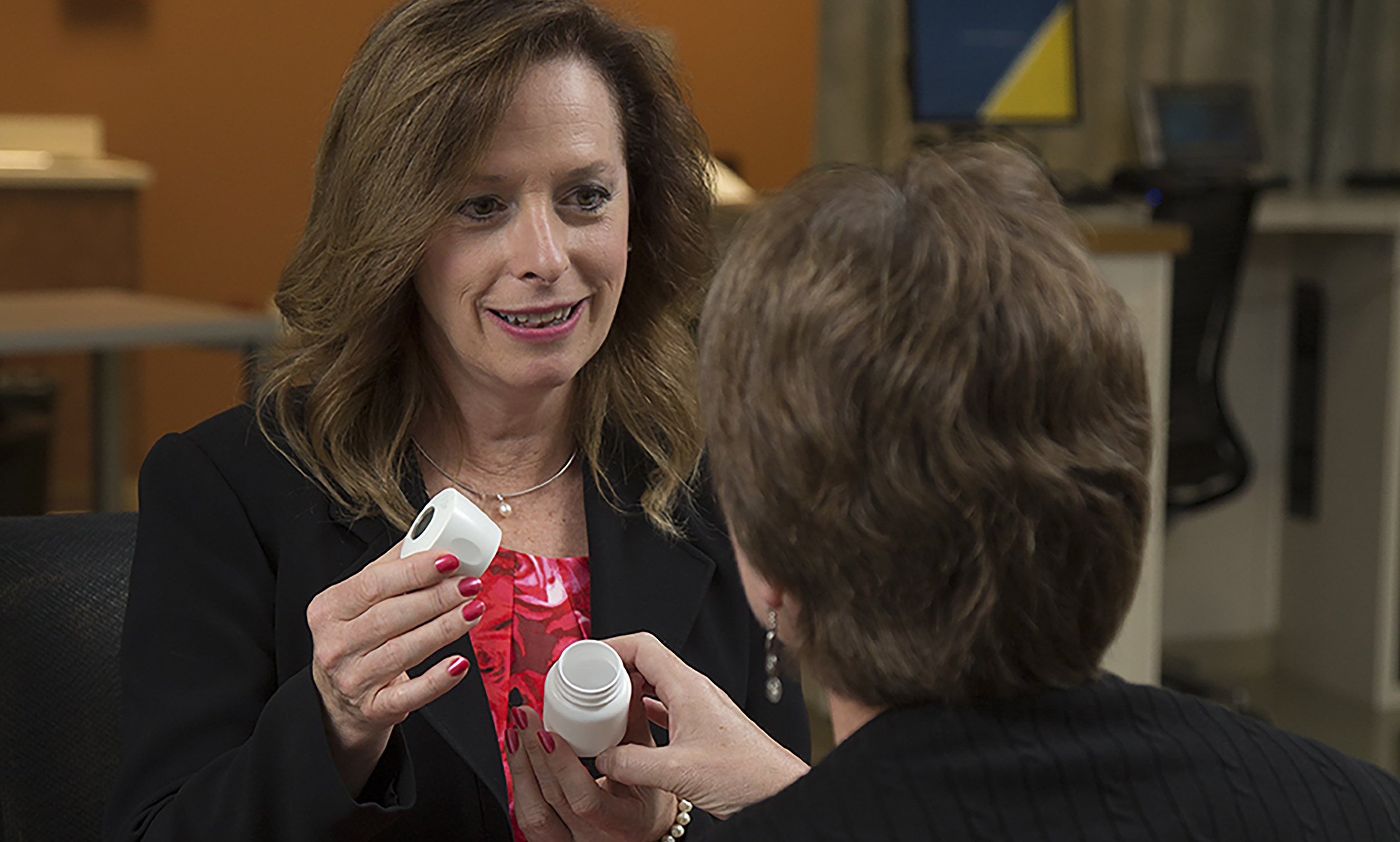Half of Americans who are prescribed medications don’t take them as directed. That’s a $300 billion healthcare problem, but a University of Missouri-Kansas City study shows progress using a personal-systems approach to taking medicine.
The UMKC study tracked the medication practices of kidney transplant patients. UMKC Professor Cynthia Russell is the primary investigator on the Medication Adherence Given Individual Change — or MAGIC — study, recently published by the American Society of Transplantation and the American Society of Transplant Surgeons. Her team, funded by a $2.585 million National Institutes of Health grant, includes researchers from University of Missouri, Children’s Mercy, University of Tennessee and Indiana University.
“Though they have received the ‘gift of life,’ about 75 percent of people with a kidney transplant struggle to take transplant medicines on time every day for the life of the transplant,” said Russell, past president of the International Transplant Nurses Society. “Without these critical medications, the kidney will not survive. Our goal is to help people keep their gift of life for a very long time. More kidneys will be available to those in need of this critical resource, since they won’t have to rejoin the transplant list.”
“Though they have received the ‘gift of life,’ about 75 percent of people with a kidney transplant struggle to take transplant medicines on time every day for the life of the transplant. Without these critical medications, the kidney will not survive.”
In the MAGIC study, Russell’s team used the SystemCHANGE intervention, which has been shown to be effective with difficult-to-change behaviors like exercise. With the intervention, the patient is taught to modify daily routines and habits. They track success using data from an electronic medication monitoring system. The SystemCHANGE approach moves away from traditional interventions that focus on motivation and intention and instead improves the patient’s ability to monitor small environmental changes and determine the effectiveness of the changes using data.
The MAGIC study was conducted with 89 kidney transplant patients at Saint Luke’s Hospital in Kansas City; University of Kansas Medical Center; University of Missouri Healthcare in Columbia; Barnes Jewish Hospital in St. Louis and the University of Tennessee Health Science Center in Memphis.
“...not only are kidney transplant patients able to benefit from this research, but patients with other diseases will soon gain from this model of scientific investigation.”
The result: using SystemCHANGE “demonstrated large, clinically meaningful improvements in medication adherence.”
Russell’s recently published research represents a capstone of nearly 20 years of discovery to understand and improve medication adherence in transplant patients, said Mark Wakefield, M.D., director of the renal transplant program at University of Missouri Health Care.
“During this journey, she has successfully collaborated across disciplines and among institutions, which has allowed for a greater clinical impact among a more diverse population of patients,” Wakefield said. “As a result, not only are kidney transplant patients able to benefit from this research, but patients with other diseases will soon gain from this model of scientific investigation.”
“Our intervention with transplant patients is now being tested in other chronic illnesses such as heart failure, stroke and soon, chronic kidney disease,” Russell said.

